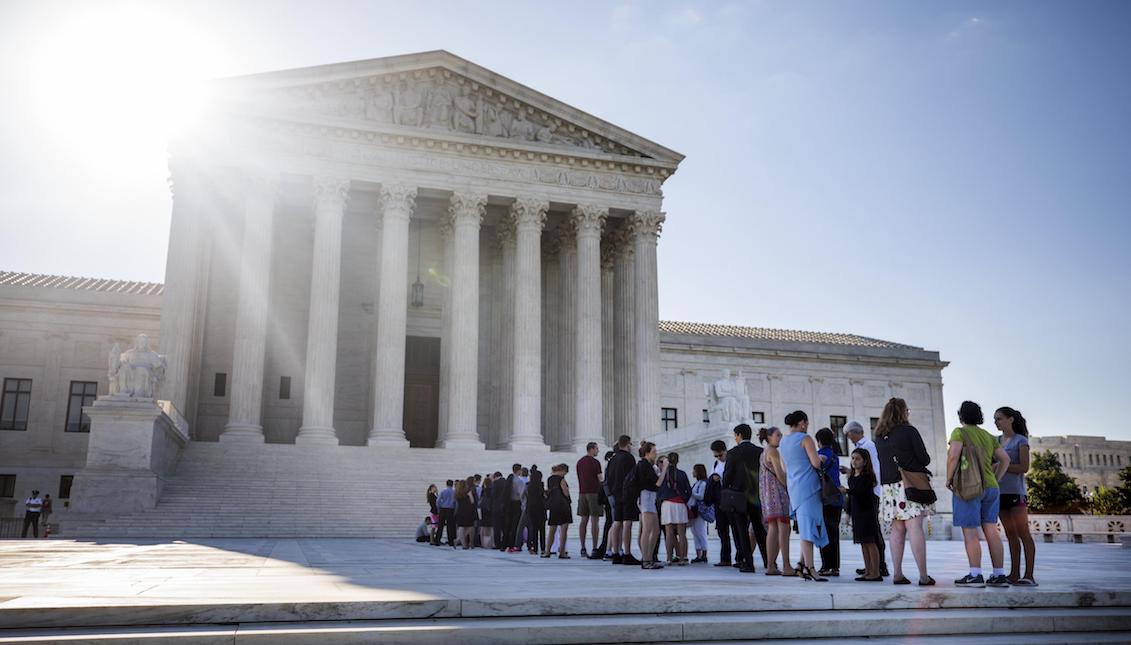
The Supreme Court has approved the partial implementation of Trump's travel ban
Today, the US Supreme Court has partially ruled in favor of President Trump's travel ban, and will allow hearings of oral arguments in the case.
The Supreme Court has given a small victory to President Trump by authorizing some parts of his proposed travel ban against citizens from six Muslim-majority countries as well as refugees, agreeing to similarly decide on their legality over the course of the year.
Following opposition in state courts blocking its March 6 executive order, the law will now forbid the entry of people who do not have demonstrable relationships - family or employment - in US territory.
Despite strong criticism of the proposal - labeled as racist and Islamophobic - President Trump today declared that the Supreme Court's measure is "a clear victory for our national security."
In his statement, the President assured that "I cannot allow people into our country who want to do us harm. I want people who can love the United States and all of its citizens, and who will be hardworking and productive,"
In this way, the Court ruled that students admitted into national universities, as well as workers hired by US companies, will be allowed to enter.
Trump's executive order called for a 90-day immigration veto against citizens of Libya, Iran, Somalia, Sudan, Syria and Yemen, as well as a ban on entry to any refugee for a period of 120 days. Federal judges blocked the proposal, but the Supreme Court ruling could be effective within 72 hours.
A Conservative-majority Supreme Court, headed by Judge Neil Gorsuch who was appointed last April, received the president’s appeal. The Court has five Republican magistrates and four Democrats.
RELATED CONTENT
Among the Conservatives, Clarence Thomas, Samuel Alito, and Neil Gorsuch himself agreed that the Court should have passed the full measure.
Democratic National Committee chairman Tom Perez said the veto was still "an unconstitutional and un-American assault on our country's religious freedom," adding that "the Democrats will continue to fight this hatred to the end", according to The Guardian.
Likewise, Omar Jadwat, representative of the American Civil Liberties Union, stated that "It's going to be very important for us over this intervening period to make sure the government abides by the terms of the order and does not try to use it as a back door into implementing the full-scale Muslim ban that it's been seeking to implement throughout the presidency”, as reported Reuters.
According to Page Pate, CNN's legal analyst, the short version of the travel ban may cause the same kind of chaos at airports as happened during the month of January.
"That's going to be an extreme headache. Think about how the people at the border, at airports are going to make that decision," she said. "Who is going to make this decision? If we leave it to the folks on the front line, that's just going to lead to more litigation."
For its part, the Department of Homeland Security said in a statement that it would discuss the Court's ruling with the Justice and State Departments, in order to implement the veto "professionally, with clear and sufficient public notice, particularly to potentially affected travelers, and in coordination with partners in the travel industry", as reported by CNN.











LEAVE A COMMENT: